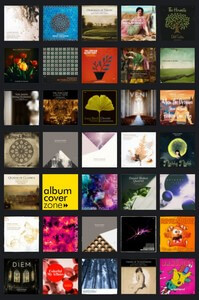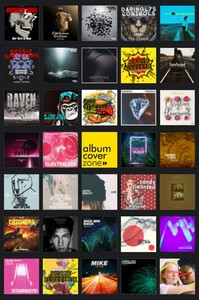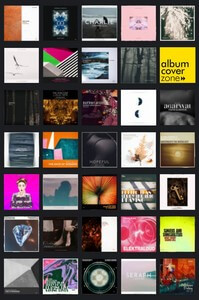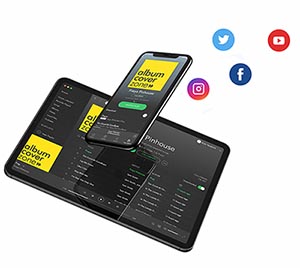
Creating a press pack (or electronic press kit, EPK, whichever you call it) requires a solid understanding of the goals and objectives of a musician/music formation/recent release you are promoting. In short; an electronic press kit is a collection of materials that includes a biography, press releases, images, sound files, and other promotional materials that can be used to promote the musician or their latest release.
Having an EPK is step one in the field! Even before a website, you should have your press pack strategy ready. If you are planning on releasing multiple albums or singles in the near future, aim at first for a layout that you can use more than once. Building the first press kit will be the most time-consuming one, from then on, you will be filling in the blanks for each release, so be patient!
Here are some “musts” on how to write a press pack for a musician.
1. Start with a strong introduction. For most musicians, this is the most difficult part of the task! It should explain who the musician/project/group is, what their style of music is like, and what makes them unique. You can do this by mentioning your influences from existing famous musicians as an upcoming artist followed by your unique qualities that are part of you outside of your main influences. Make sure to bold the crucial sections of your text to create a natural flow for someone who is skim-reading your text.
2. Give information about the release you are promoting; describe your album/single/song in words in an economical manner. You don’t have to dive too deep at this point, but the way a short soundscape can make you imagine an environment, you need to push the boundaries of your vocabulary to create a wordscape to help the reader imagine your sound. As funny as it sounds, reading advertisement lines for perfumes wines and spirits can inspire you more than you can imagine!
3. Write a biography. This should include a detailed background of the person or the entity, including career highlights, and any awards received or achievements reached so far. Add whatever you want and leave whatever you want in terms of “how you want to be known”. If articulating the history of how your small-town band turned big is how you want to be known, emphasize that. If you want to appear out of nowhere and keep some mystery about your background, you don’t need to write your birth place or anything you don’t want to share!
4. Compile press releases. Make sure to include any commentaries, interviews, or news articles that have been published around your music. In your EPK you don’t have to put them all, but after gathering all the information together you can find the perfect quotes to select a few.
5. Include multiple images. It is important to include professional photographs. Provide at least a few options that could go well with any format; some pictures work well for vertical (f.e. the usual poster design) while others are better to be used in horizontal formats. If your artist’s pictures don’t follow your album’s color code specifically, provide at least one with dark and one with a bright background. Put your album cover in the press kit as well as the singles’ cover designs if you have released them to boost the album release.
6. Provide sound files. Include a link to your music, if you already have published music in music stream platforms, add at least YouTube, iTunes, Spotify, and Amazon links. The person who will check the press will have at least one of the above. Even if you have a link tree or something similar, it is good to put the separate links available on your email.
7. Offer contact information. Make sure to include contact information for the musician, including their website, social media accounts, and their management or booking contact.
Here are some useful tips about press packs:
1. Ideally we imagine an editor or a show host to read everything you write and listen to all your music before coming up with their commentary about your music but not to give a certain percentage, nevertheless, many sites that publish recent releases news will copy paste what you wrote or reword it a little, but keep in mind not every “editor” “writes” before putting their name under an article. So when it comes to accenting your or your music’s qualities, don’t be shy and go bold in your descriptions because they won’t do the job for you.
2. Attach your press pack in various formats; send a .doc and a .pdf for example, but also add the text of the press pack below your email as plain text for them to have the quickest access to the crucial information.
3. Even if you have a website, to which you can put your press pack, still work your .pdf, .doc, and plain text formats. We know, we know, this may sound off but the key is to provide all possibilities to the reader and give them access to your information in any way they desire.
By following these tips, you can create a compelling and informative press pack useful for all media channels.
A lot of work, right? It is worth it. And to ease up your to-do list, here at AlbumCoverZone, we cover the design work you need to put an album out there. Check our library with more than 7.000 album cover designs to pick the right one for you!










